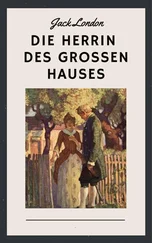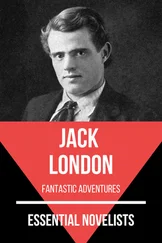Jack London - John Barleycorn
Здесь есть возможность читать онлайн «Jack London - John Barleycorn» весь текст электронной книги совершенно бесплатно (целиком полную версию без сокращений). В некоторых случаях можно слушать аудио, скачать через торрент в формате fb2 и присутствует краткое содержание. Жанр: Классическая проза, на английском языке. Описание произведения, (предисловие) а так же отзывы посетителей доступны на портале библиотеки ЛибКат.
- Название:John Barleycorn
- Автор:
- Жанр:
- Год:неизвестен
- ISBN:нет данных
- Рейтинг книги:3 / 5. Голосов: 1
-
Избранное:Добавить в избранное
- Отзывы:
-
Ваша оценка:
- 60
- 1
- 2
- 3
- 4
- 5
John Barleycorn: краткое содержание, описание и аннотация
Предлагаем к чтению аннотацию, описание, краткое содержание или предисловие (зависит от того, что написал сам автор книги «John Barleycorn»). Если вы не нашли необходимую информацию о книге — напишите в комментариях, мы постараемся отыскать её.
John Barleycorn — читать онлайн бесплатно полную книгу (весь текст) целиком
Ниже представлен текст книги, разбитый по страницам. Система сохранения места последней прочитанной страницы, позволяет с удобством читать онлайн бесплатно книгу «John Barleycorn», без необходимости каждый раз заново искать на чём Вы остановились. Поставьте закладку, и сможете в любой момент перейти на страницу, на которой закончили чтение.
Интервал:
Закладка:
CHAPTER XIX
When I was with people who did not drink, I never thought of drinking. Louis did not drink. Neither he nor I could afford it; but, more significant than that, we had no desire to drink. We were healthy, normal, non-alcoholic. Had we been alcoholic, we would have drunk whether or not we could have afforded it.
Each night, after the day's work, washed up, clothes changed, and supper eaten, we met on the street corner or in the little candy store. But the warm fall weather passed, and on bitter nights of frost or damp nights of drizzle, the street corner was not a comfortable meeting-place. And the candy store was unheated. Nita, or whoever waited on the counter, between waitings lurked in a back living-room that was heated. We were not admitted to this room, and in the store it was as cold as out-of-doors.
Louis and I debated the situation. There was only one solution: the saloon, the congregating-place of men, the place where men hobnobbed with John Barleycorn. Well do I remember the damp and draughty evening, shivering without overcoats because we could not afford them, that Louis and I started out to select our saloon. Saloons are always warm and comfortable. Now Louis and I did not go into this saloon because we wanted a drink. Yet we knew that saloons were not charitable institutions. A man could not make a lounging-place of a saloon without occasionally buying something over the bar.
Our dimes and nickels were few. We could ill spare any of them when they were so potent in paying car-fare for oneself and a girl. (We never paid car-fare when by ourselves, being content to walk.) So, in this saloon, we desired to make the most of our expenditure. We called for a deck of cards and sat down at a table and played euchre for an hour, in which time Louis treated once, and I treated once, to beerthe cheapest drink, ten cents for two. Prodigal! How we grudged it!
We studied the men who came into the place. They seemed all middle-aged and elderly work-men, most of them Germans, who flocked by themselves in old-acquaintance groups, and with whom we could have only the slightest contacts. We voted against that saloon, and went out cast down with the knowledge that we had lost an evening and wasted twenty cents for beer that we didn't want.
We made several more tries on succeeding nights, and at last found our way into the National, a saloon on Tenth and Franklin . Here was a more congenial crowd. Here Louis met a fellow or two he knew, and here I met fellows I had gone to school with when a little lad in knee pants. We talked of old days, and of what had become of this fellow, and what that fellow was doing now, and of course we talked it over drinks. They treated, and we drank. Then, according to the code of drinking, we had to treat. It hurt, for it meant forty to fifty cents a clatter.
We felt quite enlivened when the short evening was over; but at the same time we were bankrupt. Our week's spending money was gone. We decided that that was the saloon for us, and we agreed to be more circumspect thereafter in our drink-buying. Also, we had to economise for the rest of the week. We didn't even have car-fare. We were compelled to break an engagement with two girls from West Oakland with whom we were attempting to be in love. They were to meet us up town the next evening, and we hadn't the car-fare necessary to take them home. Like many others financially embarrassed, we had to disappear for a time from the gay whirlat least until Saturday night pay-day. So Louis and I rendezvoused in a livery stable, and with coats buttoned and chattering teeth played euchre and casino until the time of our exile was over.
Then we returned to the National Saloon and spent no more than we could decently avoid spending for the comfort and warmth. Sometimes we had mishaps, as when one got stuck twice in succession in a five-handed game of Sancho Pedro for the drinks. Such a disaster meant anywhere between twenty-five to eighty cents, just according to how many of the players ordered ten-cent drinks. But we could temporarily escape the evil effects of such disaster, by virtue of an account we ran behind the bar. Of course, this only set back the day of reckoning and seduced us into spending more than we would have spent on a cash basis. (When I left Oakland suddenly for the adventure-path the following spring, I well remember I owed that saloon-keeper one dollar and seventy cents. Long after, when I returned, he was gone. I still owe him that dollar and seventy cents, and if he should chance to read these lines I want him to know that I'll pay on demand.)
The foregoing incident of the National Saloon I have given in order again to show the lure, or draw, or compulsion, toward John Barleycorn in society as at present organised with saloons on all the corners. Louis and I were two healthy youths. We didn't want to drink. We couldn't afford to drink. And yet we were driven by the circumstance of cold and rainy weather to seek refuge in a saloon, where we had to spend part of our pitiful dole for drink. It will be urged by some critics that we might have gone to the Y.M.C.A., to night school, and to the social circles and homes of young people. The only reply is that we didn't. That is the irrefragable fact. We didn't. And to-day, at this moment, there are hundreds of thousands of boys like Louis and me doing just what Louis and I did with John Barleycorn, warm and comfortable, beckoning and welcoming, tucking their arms in his and beginning to teach them his mellow ways.
CHAPTER XX
The jute mills failed of its agreement to increase my pay to a dollar and a quarter a day, and I, a free-born American boy whose direct ancestors had fought in all the wars from the old pre-Revolutionary Indian wars down, exercised my sovereign right of free contract by quitting the job.
I was still resolved to settle down, and I looked about me. One thing was clear. Unskilled labour didn't pay. I must learn a trade, and I decided on electricity. The need for electricians was constantly growing. But how to become an electrician? I hadn't the money to go to a technical school or university; besides, I didn't think much of schools. I was a practical man in a practical world. Also, I still believed in the old myths which were the heritage of the American boy when I was a boy.
A canal boy could become a President. Any boy who took employment with any firm could, by thrift, energy, and sobriety, learn the business and rise from position to position until he was taken in as a junior partner. After that the senior partnership was only a matter of time. Very oftenso ran the myththe boy, by reason of his steadiness and application, married his employ's daughter. By this time I had been encouraged to such faith in myself in the matter of girls that I was quite certain I would marry my employer's daughter. There wasn't a doubt of it. All the little boys in the myths did it as soon as they were old enough.
So I bade farewell for ever to the adventure-path, and went out to the power plant of one of our Oakland street railways. I saw the superintendent himself, in a private office so fine that it almost stunned me. But I talked straight up. I told him I wanted to become a practical electrician, that I was unafraid of work, that I was used to hard work, and that all he had to do was look at me to see I was fit and strong. I told him that I wanted to begin right at the bottom and work up, that I wanted to devote my life to this one occupation and this one employment.
The superintendent beamed as he listened. He told me that I was the right stuff for success, and that he believed in encouraging American youth that wanted to rise. Why, employers were always on the lookout for young fellows like me, and alas, they found them all too rarely. My ambition was fine and worthy, and he would see to it that I got my chance. (And as I listened with swelling heart, I wondered if it was his daughter I was to marry.)
Читать дальшеИнтервал:
Закладка:
Похожие книги на «John Barleycorn»
Представляем Вашему вниманию похожие книги на «John Barleycorn» списком для выбора. Мы отобрали схожую по названию и смыслу литературу в надежде предоставить читателям больше вариантов отыскать новые, интересные, ещё непрочитанные произведения.
Обсуждение, отзывы о книге «John Barleycorn» и просто собственные мнения читателей. Оставьте ваши комментарии, напишите, что Вы думаете о произведении, его смысле или главных героях. Укажите что конкретно понравилось, а что нет, и почему Вы так считаете.











